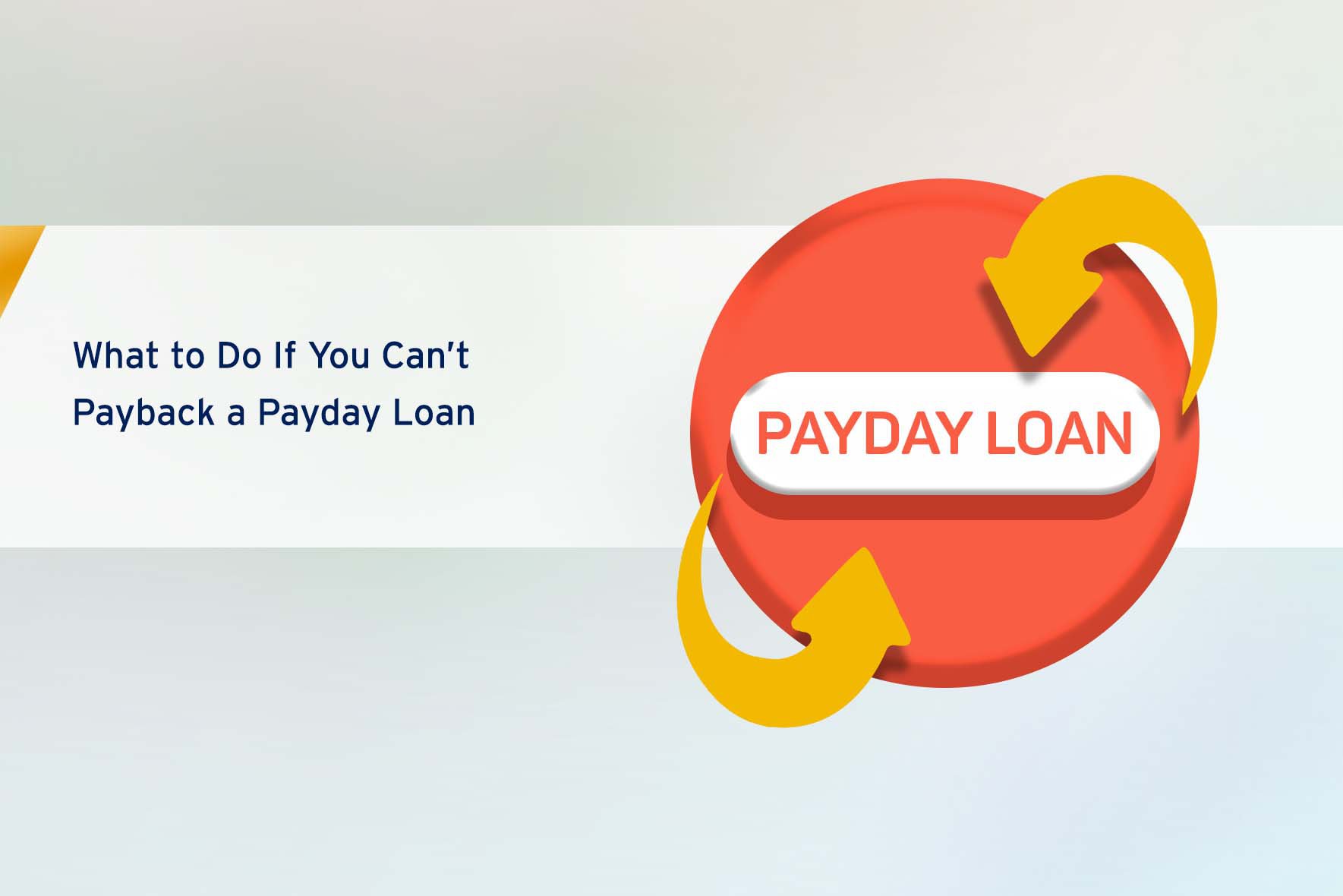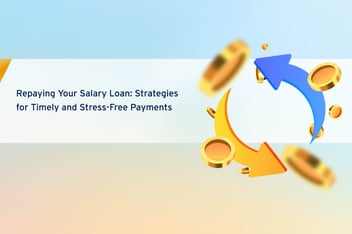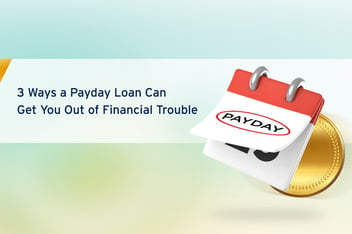
What to Do If You Can’t Pay Back a Payday Loan
Author Taiwo Temitope-Adesope
Paying back a payday loan may seem easy, but certain circumstances could arise causing you to default on payment. If you find yourself in such situation, what do you do?
This blog post will take you through steps to take if you can’t pay back your payday loan at the agreed time.
A payday loan is a short-term loan that is typically repaid on the borrower's next payday. In Nigeria, payday loans are typically for small amounts of money, such as ₦5,000 or less. To get a payday loan, the borrower typically provides the lender with a post-dated cheque or access to their bank account.
The lender then deposits the loan amount into the borrower's account and the borrower agrees to repay the loan on their next payday, plus interest and fees.
Payday loans can be a helpful option for people who need a small amount of money to cover an unexpected expense. However, it is usually advised that they should be used as a last resort, as they can be very expensive.
Here are some things to keep in mind if you are considering taking out a payday loan in Nigeria:
● Payday loans are expensive
The interest rates on payday loans are typically very high, often around 30%. This means that if you borrow ₦5,000 for two weeks, you could end up paying back ₦5,750.
● Payday loans are short-term
Payday loans are typically due on the borrower's next payday, which is typically two weeks. This means that you will need to have the money to repay the loan on time.
● Payday loans can be difficult to repay
If you cannot repay the loan on time, you may have to pay late fees or penalties.
In some cases, you may even have to default on the loan, which can damage your credit score.
Before you take out a payday loan in Nigeria, it is important to weigh the risks and benefits carefully.
Penalties for defaulting on a payday loan
Defaulting on a payday loan in Nigeria can have serious consequences, as payday lenders are typically quick to take action to recover the debt.
The penalties for defaulting on a payday loan can vary based on the lender and the specific terms of the loan agreement.
Some potential penalties borrowers may face for defaulting on a payday loan may include:
● Late payment fees
If you miss the due date for repayment, the lender may charge late payment fees, adding to the total amount you owe.
● Increased interest and additional charges
Defaulting on a payday loan may result in an increased interest rate or additional charges, making the loan even more expensive to repay.
● Collection calls and harassment
Lenders or collection agencies may start contacting you through phone calls, emails, or letters to demand payment. Some may resort to aggressive tactics, which could be considered harassment.
● Legal action
In some cases, payday lenders may take legal action against borrowers who default on their loans. This may include filing a lawsuit to obtain a court judgment against you, which could lead to wage garnishment or asset seizure to satisfy the debt.
● Negative impact on credit score
While payday lenders may not report loan activity to the major credit bureaus, they may use alternative credit reporting methods or engage third-party collection agencies that could negatively impact your credit score.
● Debt cycle
If you are not careful, defaulting on a payday loan and being unable to repay it can lead to a cycle of debt. Some borrowers may take out new loans to repay the original one, leading to a continuous and costly borrowing pattern.
● Bank account seizure
If the payday loan was secured with a post-dated cheque or access to your bank account, the lender may attempt to withdraw funds directly from your account, potentially resulting in overdraft fees.
Practical ways to deal with unpaid payday loans
If you find yourself unable to repay a payday loan on the scheduled due date, it's essential to take immediate action to address the situation and avoid potential negative consequences.
Here are some steps to consider if you can't pay back a payday loan:
1. Communicate with the lender
Contact the payday loan lender as soon as possible and explain your situation honestly. Some lenders may be willing to work with you and offer alternative repayment arrangements or extensions.
Keep in mind that communication is crucial, and ignoring the situation will likely lead to more severe consequences.
2. Check the loan agreement
Review the loan agreement to understand the terms and conditions, including any late payment fees or penalties.
Also, you could familiarise yourself with the lender's policies regarding late payments and default.
3. Avoid rollovers
Rollovers, where you take out a new loan to repay the existing one, can lead to a cycle of debt with accumulating fees and interest. Avoid this practice as it can make your financial situation worse.
4. Seek financial assistance
If you are facing financial difficulties beyond the payday loan, consider seeking assistance from a credit counseling agency or a financial advisor. They can help you create a budget and explore options to manage your debt.
5. Know your rights
Familiarise yourself with your rights as a borrower. The Central Bank of Nigeria has put some regulations in place to protect consumers from predatory lending practices.
6. Monitor your bank account
Keep a close eye on your bank account to ensure that the lender does not attempt to withdraw funds multiple times, which can result in overdraft fees.
7. Know the consequences
Be aware of the potential consequences of defaulting on a payday loan, such as damaged credit, collection calls, and legal actions taken by the lender.
Remember, if you're struggling with payday loan debt, it's essential to seek assistance and explore available options to address your financial challenges proactively.
Taking early action can help you manage the situation more effectively and minimize the impact on your financial well-being.
Tips to help you pay off your payday loan faster.
As stated, dealing with unpaid payday loans can be challenging. This is why before taking a loan of any kind; you have a payment strategy.
Paying off your loan faster can save you money on interest and help improve your financial wellbeing.
Here are some tips to help you accelerate the loan repayment process:
● Create a budget
Develop a detailed budget that outlines your income, expenses, and debt obligations. Identify areas where you can cut back on spending to free up extra money for loan payments.
● Break down payments to smaller bits
Instead of making monthly payments, consider making biweekly payments. This approach can significantly reduce the loan term.
● Round up payments
Round up your loan payments to the nearest higher amount. For example, if your monthly payment is N5,450, consider paying N6,000 or more.
The extra amount goes directly toward the principal balance, helping you pay off the loan faster.
● Use residual income
Whenever you receive unexpected money, such as a bonus, or gift, use a portion of it to make a lump-sum payment on your loan.
● Avoid new debts
While repaying the current loan, avoid taking on new debts that could hinder your progress. Focus on clearing existing debt before considering new financial obligations.
● Stay motivated
Staying committed to your goal of paying off the loan faster is essential. Celebrate each milestone and track your progress to stay motivated throughout the repayment journey.
By implementing these tips and staying disciplined in your repayment efforts, you can expedite the loan payoff process and achieve financial freedom sooner.
nairaCompare has a rich array of loans, savings options, tips and reviews to guide you through your financial journey.
About Author

Taiwo Temitope-Adesope
Taiwo is a passionate storyteller and strategist dedicated to empowering women and crafting compelling narratives. A First-Class graduate in Mass Communication from Covenant University, she specializes in writing, public relations, and digital marketing. As a Content Manager at Suretree, she drove a 50% increase in web traffic through SEO and boosted website engagement by 60% in just four months. Her leadership experience includes serving as Public Relations Officer for the Covenant University Student Council and contributing to impactful volunteer initiatives. With expertise in strategic thinking and business acumen, Taiwo continues to create stories that inspire confidence and imagination.









